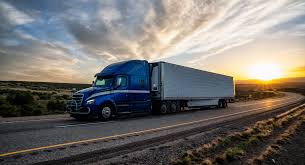The trucking industry is a vital component of the economy, transporting goods across the nation and ensuring the smooth flow of commerce. However, this industry faces numerous legislative challenges that can impact its operations, safety standards, and overall efficiency. State trucking associations play a crucial role in navigating these challenges and advocating for the interests of their members.
1.1 Definition of State Trucking Associations
State trucking associations are organizations that represent the interests of trucking companies operating within a specific state. These associations serve as a collective voice for the trucking industry, working to address common concerns and challenges faced by their members. One of the primary functions of these associations is to engage in legislative advocacy to shape policies that affect the trucking sector.
1.2 Importance of Legislative Advocacy in the Trucking Industry
Legislation and regulatory frameworks directly impact the trucking industry, influencing everything from safety standards to operational costs. State trucking associations are instrumental in monitoring, analyzing, and influencing legislative decisions that can have far-reaching consequences for their members. This article explores how these associations navigate legislative challenges and contribute to the well-being of the trucking industry.
2. The Role of State Trucking Associations in Legislative Affairs
State trucking associations actively participate in shaping legislative decisions that affect the trucking industry. Their role encompasses various activities aimed at representing the interests of their members and ensuring a conducive legislative environment.
2.1 Monitoring and Analysis of Legislation
State trucking associations closely monitor proposed legislation at both the state and federal levels. This involves tracking bills, regulatory changes, and other policy initiatives that could impact the trucking industry. By staying informed, these associations can proactively respond to potential challenges and opportunities.
2.2 Lobbying for Trucking Industry Interests
Lobbying is a crucial aspect of legislative advocacy, and state trucking associations engage in it to influence policymakers. Through direct communication with legislators, participation in hearings, and collaboration with other industry stakeholders, these associations work to ensure that the concerns of trucking companies are heard and considered during the legislative process.
2.3 Collaboration with Government Agencies
State trucking associations often collaborate with government agencies responsible for regulating the transportation industry. Building relationships with these agencies allows associations to provide valuable input, share industry expertise, and contribute to the development of effective regulations that balance the interests of both the industry and the public.
3. Legislative Challenges in the Trucking Industry
The trucking industry faces a myriad of legislative challenges that can impact its day-to-day operations and long-term sustainability. Understanding these challenges is essential for state trucking associations as they work to advocate for their members.
3.1 Overview of Key Legislative Issues
Several key legislative issues confront the trucking industry, including hours-of-service regulations, driver shortage concerns, and the integration of emerging technologies. State trucking associations play a pivotal role in addressing these issues and working towards legislative solutions that benefit the industry as a whole.
3.2 Impact of Regulations on Trucking Operations
Regulations, while necessary for ensuring safety and compliance, can also pose challenges for trucking companies. State trucking associations work to strike a balance between regulatory requirements and the operational needs of their members. This involves advocating for sensible regulations that enhance safety without unduly burdening the industry.
4. State Trucking Associations as Advocates for Safety and Compliance
Safety and compliance are paramount in the trucking industry, and state trucking associations actively promote initiatives that enhance both aspects. This proactive approach not only benefits the industry’s reputation but also ensures the well-being of drivers and the public.
4.1 Promoting Safety Standards
State trucking associations collaborate with regulatory bodies to establish and enhance safety standards within the industry. This includes advocating for technologies that improve vehicle safety, training programs for drivers, and initiatives to reduce accidents on the road.
4.2 Compliance Assistance for Trucking Companies
Navigating complex regulatory landscapes can be challenging for trucking companies. State trucking associations provide valuable assistance by offering guidance on compliance matters, helping companies adhere to regulations, and facilitating communication between industry stakeholders and regulatory authorities.
4.3 Addressing Environmental Concerns
Environmental sustainability is an increasingly important aspect of legislative considerations. State trucking associations actively engage in discussions surrounding eco-friendly practices, emission standards, and the adoption of green technologies within the trucking industry.
5. Educational Initiatives by State Trucking Associations
In addition to advocacy, state trucking associations prioritize education as a means of empowering their members to navigate legislative challenges effectively. These educational initiatives cover a range of topics and are designed to keep members informed and compliant.
5.1 Informing Members about Legislative Changes
State trucking associations serve as a valuable source of information for their members, keeping them updated on changes in legislation and regulations. This ensures that trucking companies can adapt their operations to remain in compliance with evolving legal requirements.
5.2 Training Programs for Regulatory Compliance
To enhance compliance, state trucking associations often organize training programs for their members. These programs cover various aspects of regulatory compliance, including safety protocols, record-keeping requirements, and updates on new legislation affecting the industry.
5.3 Workshops on Industry Best Practices
Sharing best practices is an integral part of the educational initiatives led by state trucking associations. Workshops and seminars provide a platform for industry experts to share insights, strategies, and successful approaches to overcoming legislative challenges.
6. Case Studies: Successful Advocacy by State Trucking Associations
Examining real-world examples of successful legislative advocacy by state trucking associations highlights the tangible impact these organizations can have on shaping favorable outcomes for their members.
State trucking associations across the country have achieved notable victories through effective legislative advocacy. One such example is the successful push for reasonable hours-of-service regulations that balance the need for driver rest with operational efficiency. By presenting data on driver fatigue, collaborating with safety advocates, and engaging in constructive dialogue with lawmakers, state trucking associations were able to shape regulations that prioritize both safety and industry productivity.
In another instance, a state trucking association played a pivotal role in amending tax policies that directly affected the financial well-being of its members. Through persistent advocacy efforts, including economic impact studies and testimony before legislative committees, the association successfully influenced the modification of tax codes, providing relief to trucking companies and stimulating economic growth within the industry.
These case studies underline the importance of state trucking associations as effective advocates for their members, demonstrating how strategic engagement with lawmakers and stakeholders can yield positive legislative outcomes.
7. Challenges Faced by State Trucking Associations in Legislative Advocacy
While state trucking associations play a crucial role in advocating for the industry, they encounter several challenges that can impact the effectiveness of their efforts.
7.1 Limited Resources
Many state trucking associations operate with limited financial and human resources. This constraint can hinder their ability to conduct extensive research, hire experienced lobbyists, and maintain a consistent presence in legislative activities. Despite these limitations, associations often find innovative ways to maximize their impact, such as forming coalitions with like-minded organizations or leveraging technology for cost-effective advocacy strategies.
7.2 Balancing the Interests of Diverse Members
Trucking associations represent a diverse membership base that includes large carriers, small businesses, owner-operators, and specialized haulers. Balancing the varied interests and priorities of these members can be challenging. Effective communication and a transparent decision-making process are essential for ensuring that advocacy efforts align with the collective interests of the entire trucking community.
7.3 Adapting to Rapid Legislative Changes
The legislative landscape is dynamic, with regulations and policies evolving rapidly. State trucking associations must stay agile and adaptive to navigate these changes effectively. This requires ongoing communication with members, prompt responses to emerging issues, and the ability to adjust advocacy strategies in real-time.
8. Future Trends in Legislative Advocacy for State Trucking Associations
As the trucking industry continues to evolve, state trucking associations must anticipate and respond to emerging trends in legislative advocacy. Several key areas are likely to shape the future of trucking legislation.
8.1 Technological Advancements in the Trucking Industry
The integration of technology, including autonomous vehicles, telematics, and data analytics, presents both opportunities and challenges. State trucking associations will need to engage with lawmakers to shape legislation that fosters innovation while addressing concerns related to safety, liability, and workforce impact.
8.2 Sustainability and Environmental Regulations
Growing environmental awareness is leading to increased focus on sustainable practices in the trucking industry. State trucking associations will likely play a crucial role in advocating for regulations that promote eco-friendly technologies, alternative fuels, and emission reduction strategies, while ensuring that compliance measures are practical for businesses.
8.3 Evolving Safety Standards
Advancements in safety technologies and changes in societal expectations will drive the evolution of safety standards. State trucking associations must actively participate in discussions surrounding these changes, ensuring that new regulations enhance safety without imposing undue burdens on the industry.
Collaboration between State and National Trucking Associations
Collaboration between state and national trucking associations is essential for creating a unified and impactful voice in legislative advocacy. The coordination of efforts allows for a more comprehensive approach to addressing legislative challenges.
Coordinated Efforts for Effective Advocacy
By aligning their advocacy strategies, state and national trucking associations can present a cohesive message to lawmakers at all levels of government. This coordinated approach strengthens the industry’s influence and increases the likelihood of achieving favorable legislative outcomes.
Sharing Resources and Information
Collaboration enables the sharing of resources, expertise, and information between state and national associations. This exchange enhances the effectiveness of advocacy initiatives, as associations can leverage the collective knowledge and capabilities of the broader trucking community.
Truck Driver News is your go-to source for staying updated on all things related to the trucking industry in America. We provide daily news on regulatory changes, technological advancements, economic trends, industry best practices, job opportunities, advocacy efforts, professional development, and foster a sense of community among truck drivers. Our mission is to keep you informed and support your vital role in keeping America on the move.
Conclusion
In conclusion, state trucking associations play a pivotal role in navigating legislative challenges and advocating for the interests of the trucking industry. Through monitoring legislation, lobbying efforts, and collaboration with government agencies, these associations contribute to shaping policies that impact safety, compliance, and operational efficiency.



